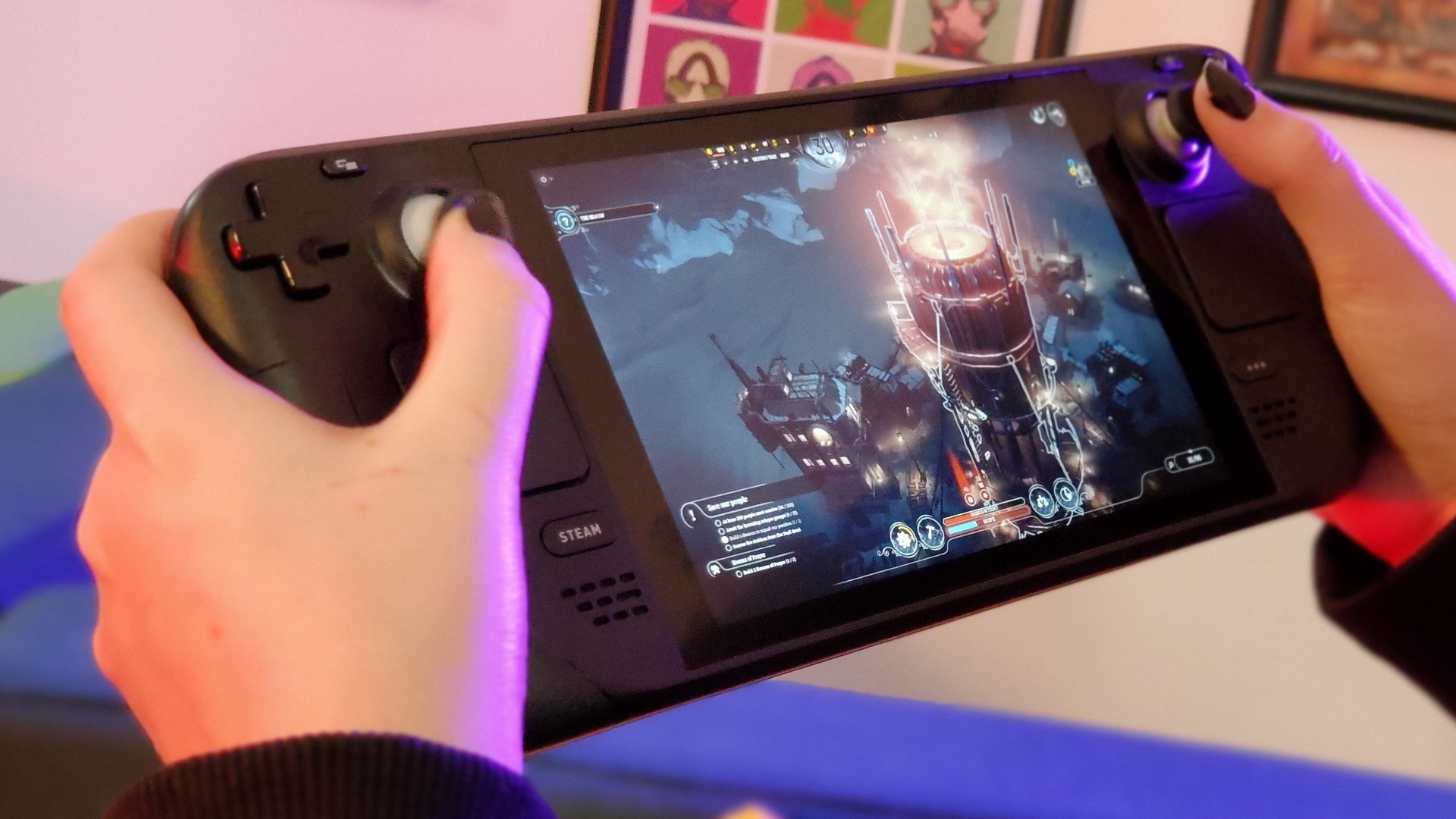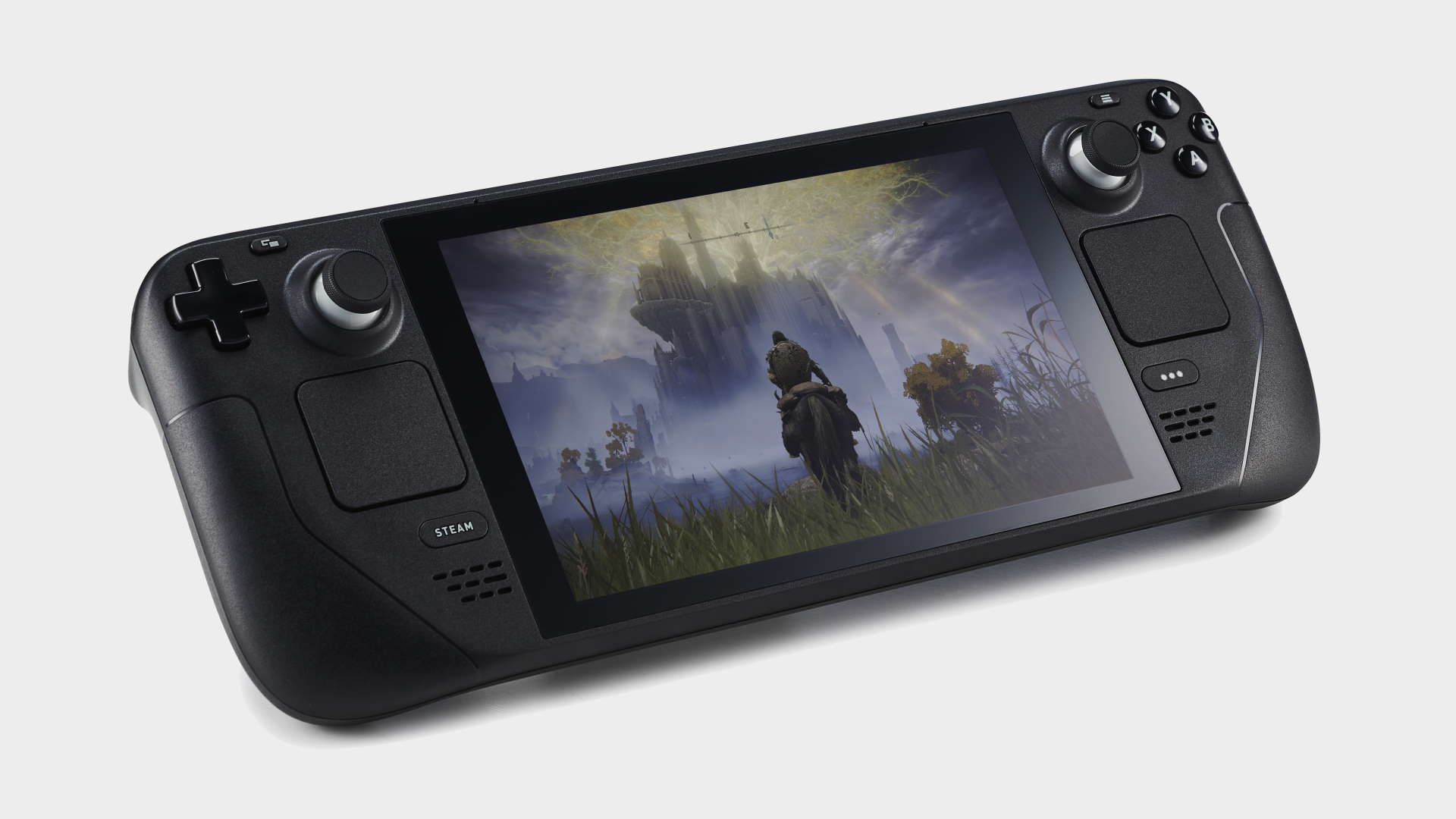Steam Deck 2 is at least two years away
Valve confirms that any plans for a faster Deck are years away.

We've been here before. But Valve's latest attempts to squish any imminent expectations of a faster Steam Deck are that little bit more specific. There won't be one until at least the end of 2025. And quite possibly longer.
Speaking to The Verge, Valve rep and Steam Deck designer Pierre-Loup Griffais explained that Valve wanted to maintain a fixed performance target for developers rather than chase incremental hardware updates.
He also said Valve would not want added performance to come at the cost of efficiency and battery life.
"It’s important to us that the Deck offers a fixed performance target for developers, and that the message to customers is simple, where every Deck can play the same games. As such, changing the performance level is not something we are taking lightly, and we only want to do so when there is a significant enough increase to be had.
We also don’t want more performance to come at a significant cost to power efficiency and battery life. I don’t anticipate such a leap to be possible in the next couple of years, but we’re still closely monitoring innovations in architectures and fabrication processes to see where things are going there," Griffais said.
There are obviously pros and cons to Valve's cautious approach. It's certainly true that providing a stable long term platform makes it easier for developers. Likewise, it also makes it more worthwhile financially for developers to put the effort in to optimising their games for the Deck the longer it hangs around.
Rapid updates would fragment the market. What game developer would want to invest lots of money in enabling decent performance on the existing Deck if it was replaced in short order by something faster?
The biggest gaming news, reviews and hardware deals
Keep up to date with the most important stories and the best deals, as picked by the PC Gamer team.

Steam Deck review: Our verdict on Valve's handheld PC.
Accessories for the Steam Deck: Get decked out
Steam Deck availability: How to get one.
Steam Deck battery life: What's the real battery life of the new device?
Steam Deck - The emulation dream machine: Using Valve's handheld hardware as the ultimate emulator.
On the other hand, running the latest games on the Deck is already pretty tricky. Two years from now, the handheld is likely to be feeling awfully slow.
But then the Deck was never intended as a tool to run Cyberpunk 2077 with ray tracing set to full reheat. So maybe that's OK.
It's also true that a new Deck now based on currently available hardware would be faster but not all that much faster. Handhelds like the Asus ROG Ally using AMD's Phoenix APU are substantially quicker. But it's not like the Ally is multiples faster.
So, yeah, holding out is probably the best approach. A new Deck in late 2025 or 2026 will no doubt offer at least double the performance of the current model and likely even more. An incremental interim speed bump probably isn't what the Steam Deck needs.

Jeremy has been writing about technology and PCs since the 90nm Netburst era (Google it!) and enjoys nothing more than a serious dissertation on the finer points of monitor input lag and overshoot followed by a forensic examination of advanced lithography. Or maybe he just likes machines that go “ping!” He also has a thing for tennis and cars.

